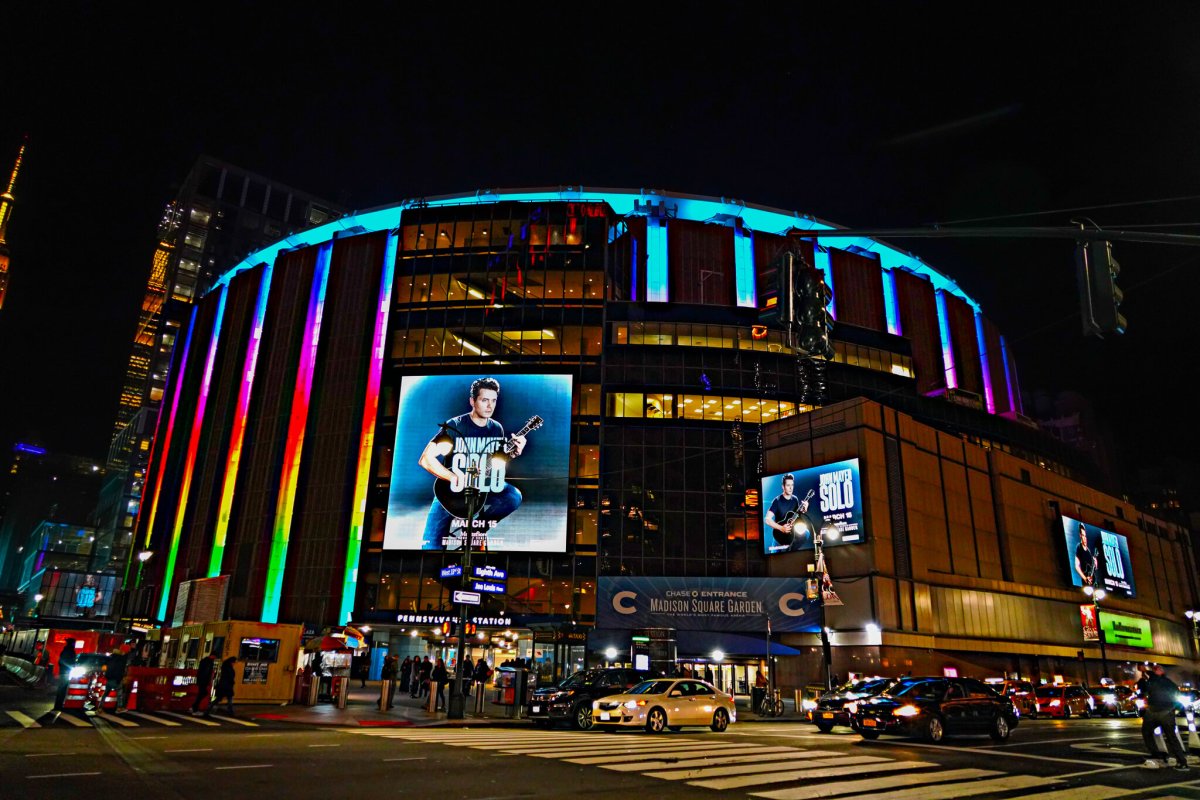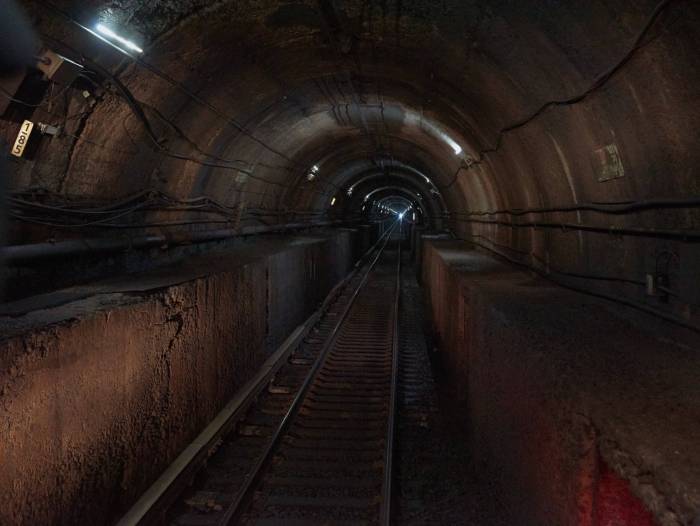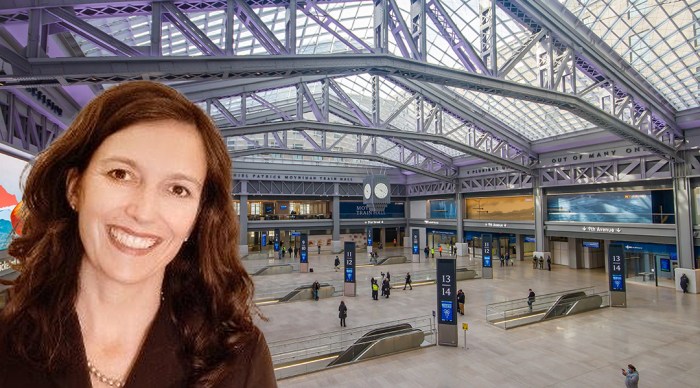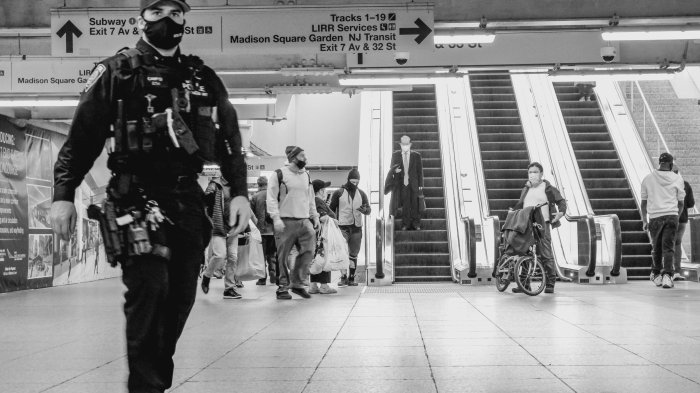The City Council is set to extend Madison Square Garden’s permit to operate its arena atop Penn Station for five years — half of what the Adams administration approved earlier this year and well below the arena’s desire to stay permanently, as transit officials seek to redevelop the long-maligned train hub below “The World’s Most Famous Arena.”
The Council’s Subcommittee on Zoning and Franchises and Land Use Committee cast the vote on Monday at a hearing delayed by several hours as negotiations were finalized. The full Council must still approve the permit — typically a formality if already approved in committee — before going to a review by the City Planning Commission and finally to the mayor.
MSG had sought to have its permit renewed in perpetuity, claiming it was necessary for long-term business planning, but the local community board recommended only a three-year extension on the condition it relocate afterward, with the support of local elected officials representing Manhattan’s west side.
The three railroad agencies using Penn Station — the MTA, New Jersey Transit, and Amtrak — said earlier this year that the Garden’s continued presence above North America’s busiest transportation hub is not “compatible” with plans to improve and modernize it.
On Monday, local City Council Member Erik Bottcher highlighted what he characterized as the Garden’s outdated loading scheme, which brings a slew of trucks into the busiest parts of Manhattan daily, along with the difficulties the arena poses to redeveloping the train station.

“Because of this use conflict, at this time the Council cannot determine the long-term viability of an arena at this location,” said Bottcher. “Therefore, five years is an appropriate term for this special permit.”
On land use concerns, the Council typically defers to the whims of the local member where a rezoning is being sought, a controversial process known as “member deference.”
The Department of City Planning had recommended a 10-year renewal — the same as it received in 2013, the last time the permit was up for renewal — granted it committed to public realm improvements in the area around the station.
City Hall deferred a request for comment to DCP, who noted that the Council’s permit renewal contains fewer requirements than that sought by the agency.
“We appreciate the work of the City Council and our partners across government to consider every aspect of the MSG special permit,” said DCP spokesperson Casey Berkovitz. “While the City Planning Commission pushed for additional efforts to improve public space that were not included in what the Council passed, the requirement of a transportation management plan and loading improvements will lead to real improvements to New Yorkers’ experience of the area around the arena.”
Monday’s permit approval comes with the condition that MSG develop a “transportation management plan” to better oversee the arena’s considerable loading needs. DCP had also required the submission of a TMP as part of their approval, potentially including plans to decarbonize their freight supply chain and move deliveries to off-hours. The railroads have also proposed to build an underground structure to handle loading that currently takes place at street level.
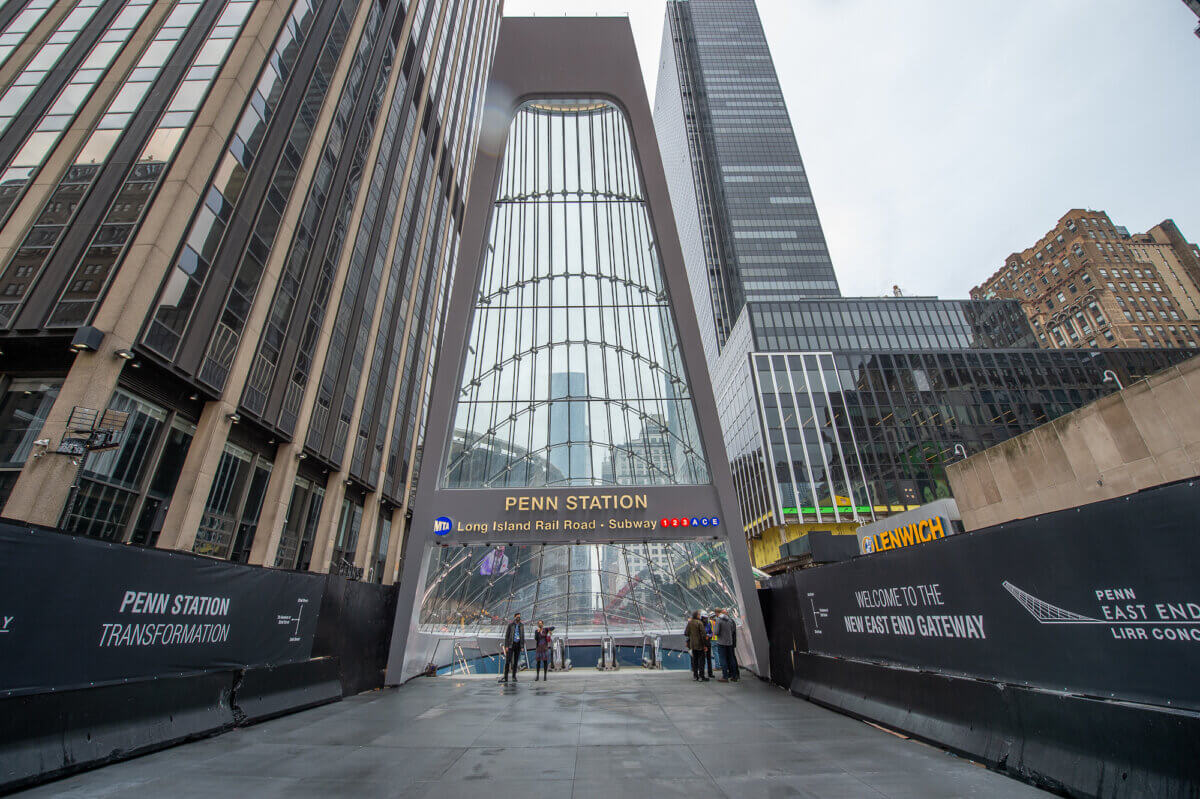
In a statement, MSG Entertainment, which owns the Garden, blasted the Council’s vote and claimed the move was a “grave disservice” to New Yorkers.
“We are disappointed in the City Council’s land use committees’ decision to limit Madison Square Garden’s special permit to 5 years,” the statement read. “A short-term special permit is not in anyone’s best interest and undermines the ability to immediately revamp Penn Station and the surrounding area. The committees have done a grave disservice to New Yorkers today, in a shortsighted move that will further contribute to the erosion of the City – that’s true now and will be true five years from now.”
The railroad agencies want to get moving on their $7 billion plan to improve Penn but need the Garden’s cooperation on a number of fronts. Most notably, they want the Garden to turn over a mid-block taxiway that’s been out of use since 9/11 to be converted into a light-filled train hall for commuters.
The railroads do not want to pay for the rights to the taxiway, reasoning the Garden — not only home to the Knicks and Rangers, but also America’s highest-grossing concert venue — benefits considerably from its position atop the station. The railroads instead proposed a series of property trades that MSG has thus far been reluctant to entertain.
Penn Station is owned by Amtrak, but the MTA has taken the de facto lead in the redesign, citing its completed redesign of the Long Island Rail Road section of the station.
“Governor [Kathy] Hochul has made it clear that her priority is delivering a world-class Penn Station,” said MTA spokesperson Aaron Donovan. “Under Governor Hochul’s leadership Penn Station passengers are already experiencing improvements from the new LIRR Concourse, and MTA will continue to work with our railroad partners and all community stakeholders to deliver the Penn Station that New Yorkers deserve.”
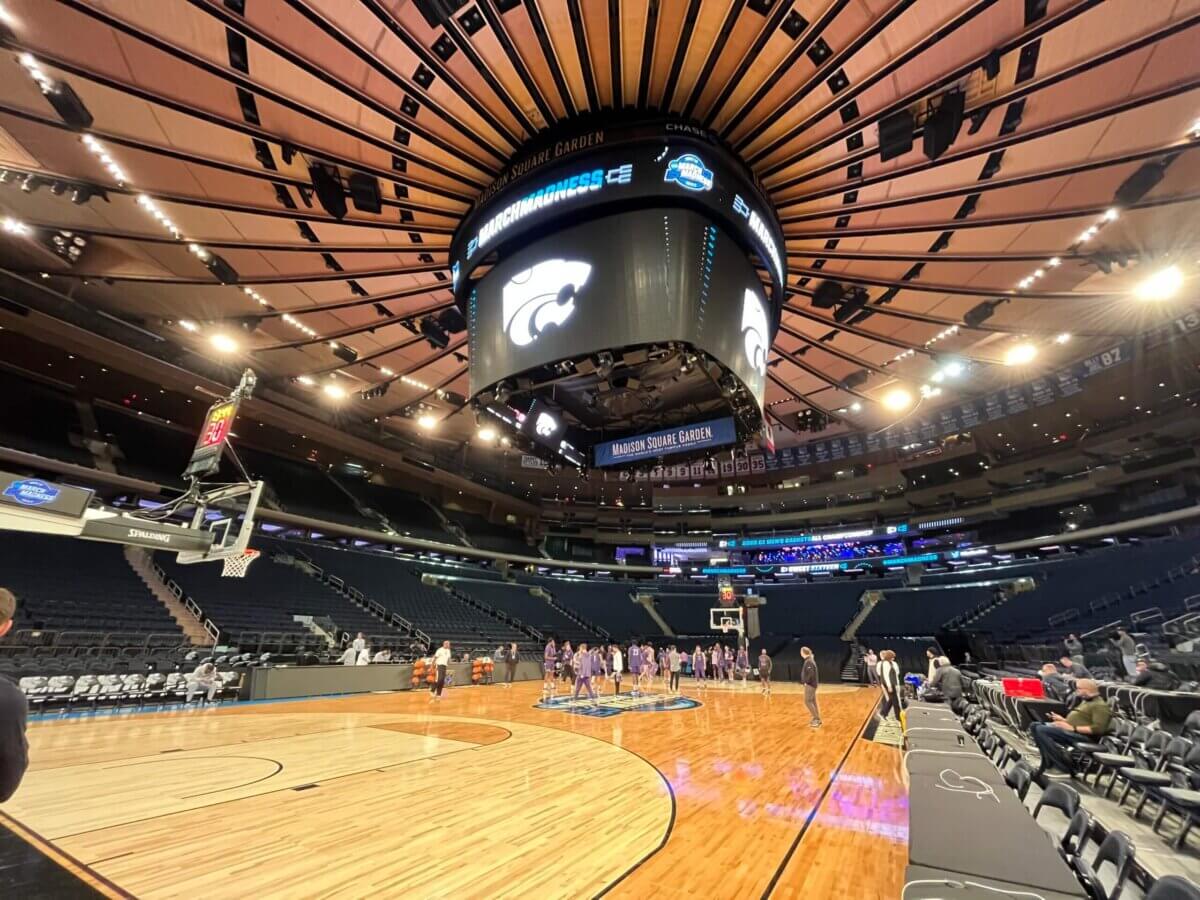
The current iteration of Madison Square Garden opened in 1968 and is the fourth arena to bear the name. The cavernous Penn Station, meanwhile, hardly lives up to its predecessor — the magnificent 1910 Beaux-Arts masterpiece designed by McKim, Mead, & White, whose destruction in the early 1960s is often cited as the genesis of the modern historic preservation movement.
The governor had previously sought to finance a Penn redesign through a massive real estate deal helmed by Vornado Realty Trust, but the controversial plans were shelved this year after the company decided it wasn’t the right time to be investing in more office space.
The railroads are also facing competition for their “master plan” from Italian engineering firm ASTM, whose well-connected North American CEO, Pat Foye, previously served as MTA Chair. The company claims it can redesign Penn and keep MSG in place for $6 billion, less than the railroads’ proposal, and within just six years. The railroads would pay ASTM to operate the station for 50 years under the proposal, which has the effective backing of Manhattan Borough President Mark Levine.
But the MTA has thrown cold water on the ASTM plan, which they characterize as a “giveaway” to the Garden and its controversial owner, James Dolan. The ASTM plan, which would see the addition of a “grand” entrance to Penn Station on Eighth Avenue, requires the costly purchase and destruction of MSG’s Hulu Theatre.
This weekend, Dolan’s fight for a permanent permit got the support of Darryl McDaniels, better known as DMC from Run-DMC. The venerable rapper said that MSG is a “New York City gem” and the “global pinnacle of entertainment,” and said the notion of the Garden ever actually moving was “hilarious.”
“Why are some elected officials talking about going through this whole process all over again in just a few years? It’s a waste of time and money for everyone,” DMC said in an op-ed for Our Town, a local Upper East Side paper. “Let’s get our heads right. A full-capacity MSG does not just inspire artists, athletes and fans, but also has a tremendous benefit for the city.”
Meanwhile, Layla Law-Gisiko, the transportation chair at Manhattan Community Board 5 who helmed the board’s push for a shorter permit, praised Monday’s vote.
“Today’s vote brings New Yorkers closer to a world-class train hub at Penn Station,” said Law-Gisiko. “This is a huge victory and we are grateful for CM Bottcher’s remarkable leadership.”



